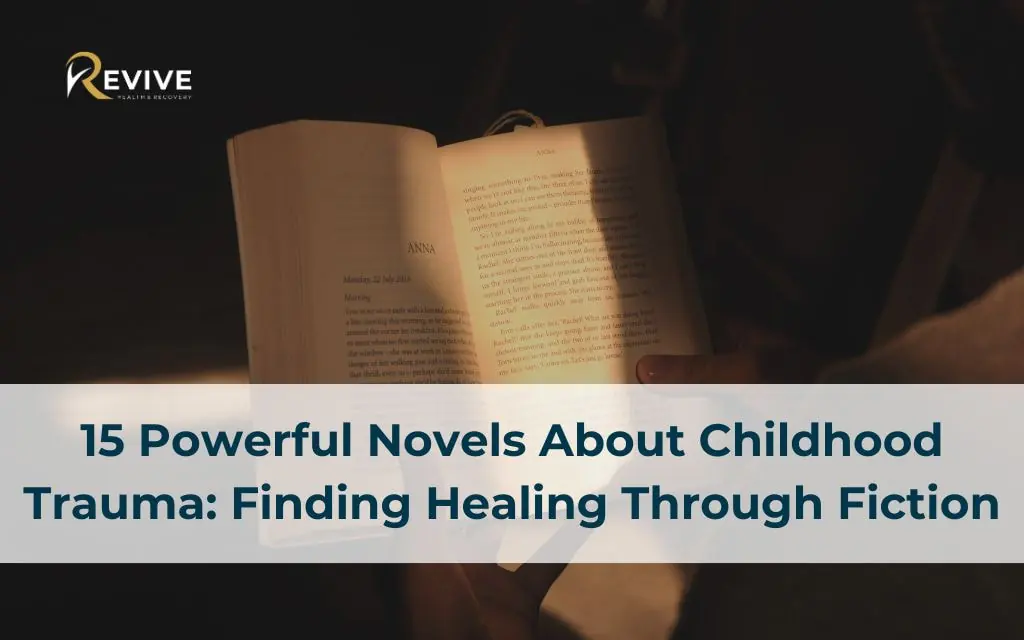As a trauma specialist at Revive Health Recovery Center in Denver, We’ve seen firsthand how novels about childhood trauma can provide profound healing from childhood trauma for survivors. Literature offers a unique window into traumatic experiences, allowing readers to process their own past through the safety of fictional narratives. For our Colorado community, these books can be especially powerful tools on the journey toward recovery.
The Healing Power of Trauma Narratives
Before diving into our recommendations, it’s important to understand why reading novels about childhood trauma can be therapeutic. Fiction provides a safe distance for processing difficult emotions while still validating lived experiences, aligning with insights from organizations like SAMHSA, which emphasize trauma’s impact on mental health and recovery. Many trauma survivors in Colorado find that novels exploring childhood trauma help them feel less alone and provide language for experiences that have remained locked away, a process supported by psychological insights into trauma’s effects.
Therapeutic reading can be a powerful complement to professional trauma treatment. At Revive Health Recovery, we often recommend fiction as part of a comprehensive healing approach for clients processing childhood trauma memories.
15 Essential Novels About Childhood Trauma
1. “The Color Purple” by Alice Walker
This powerful novel addresses intergenerational trauma, abuse, and the journey toward healing. Walker’s masterpiece resonates deeply with survivors of childhood trauma seeking to understand how early experiences shape adult relationships. The protagonist’s journey toward wholeness offers hope for those in recovery.
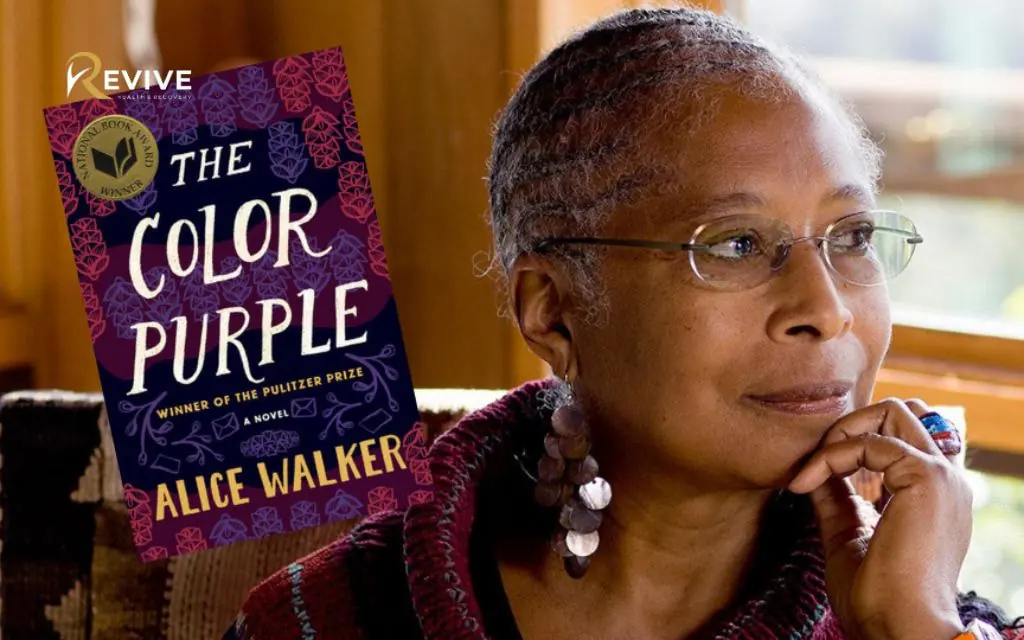
2. “A Little Life” by Hanya Yanagihara
Warning: Contains explicit descriptions of abuse. This profound exploration of childhood trauma’s lifelong impact follows Jude, whose early experiences of severe abuse affect every aspect of his adult life. While difficult to read, many trauma survivors find validation in seeing the complex reality of trauma recovery portrayed with such depth.
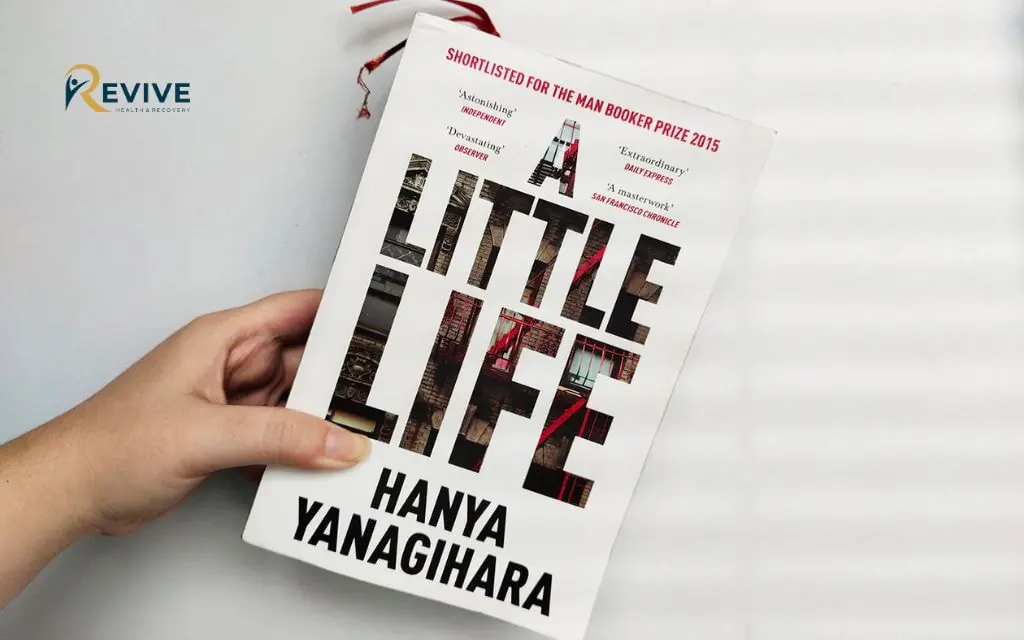
3. “The Goldfinch” by Donna Tartt
Tartt’s Pulitzer Prize-winning novel explores how a childhood traumatic event—losing a mother in a bombing—reverberates throughout the protagonist’s life. The novel beautifully illustrates trauma’s long tail in contemporary literature, showing how a single moment can alter one’s entire life trajectory.
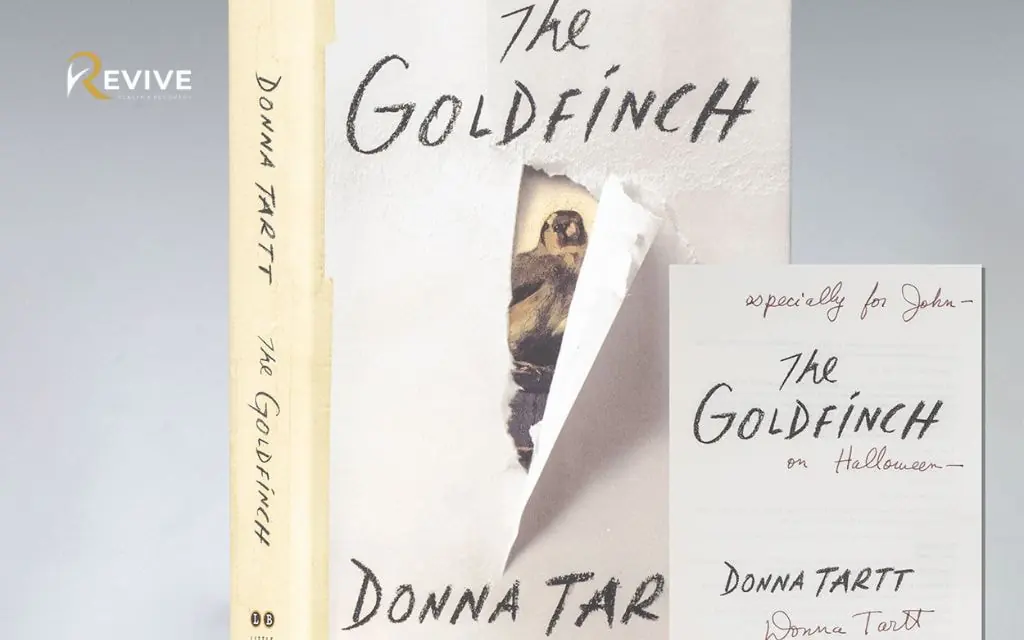
4. “Eleanor Oliphant is Completely Fine” by Gail Honeyman
This bestseller explores childhood trauma’s impact on social connections and identity. Eleanor’s journey resonates with many Colorado readers dealing with childhood trauma memories, particularly those struggling with isolation and relationship difficulties. The novel offers hope for healing even after decades of carrying trauma.
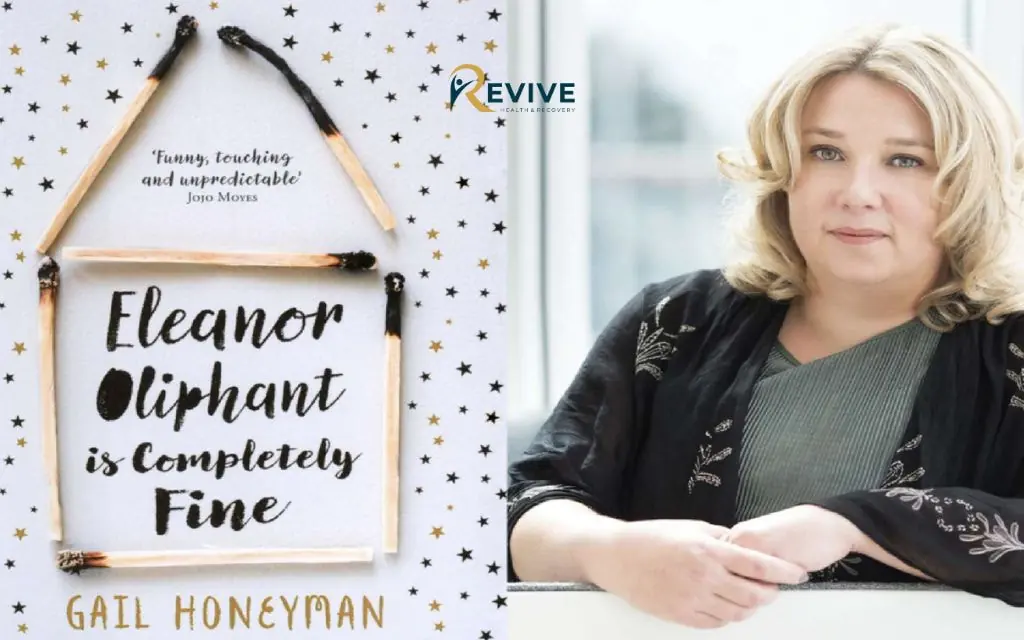
5. “My Absolute Darling” by Gabriel Tallent
Warning: Contains explicit abuse content. Set in Northern California’s wilderness, this novel follows Turtle, a young girl surviving extreme isolation and abuse. The natural setting often resonates with Colorado readers who find healing in outdoor landscapes, and the protagonist’s resilience offers inspiration for trauma survivors.
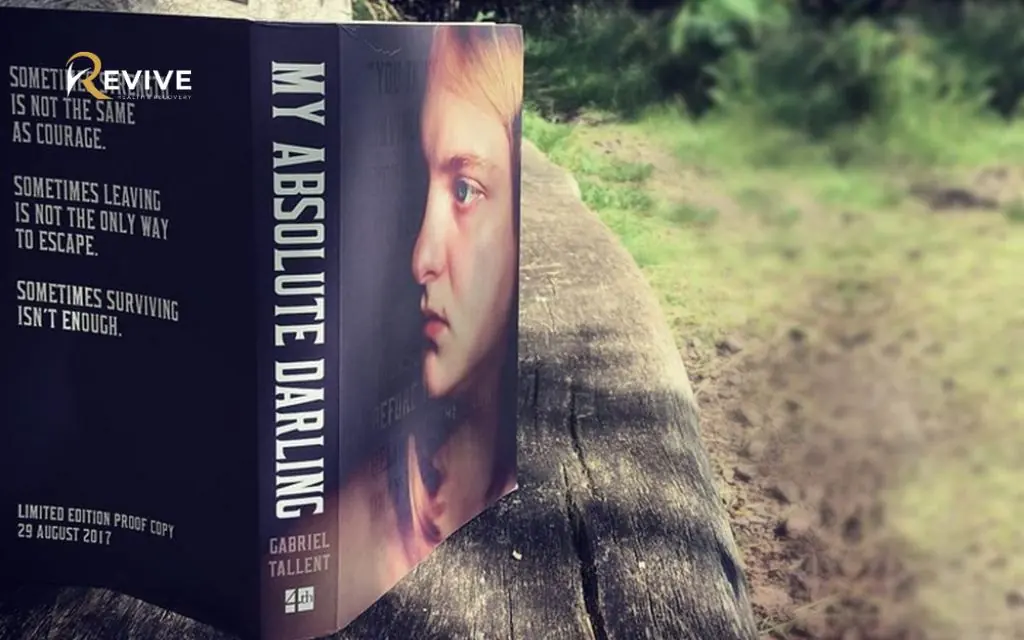
6. “Room” by Emma Donoghue
Told from the perspective of a five-year-old boy born in captivity, this novel provides a unique window into how children process traumatic circumstances. For adults reflecting on their own childhood trauma, the novel offers perspective on resilience and the capacity for growth despite extraordinary challenges.
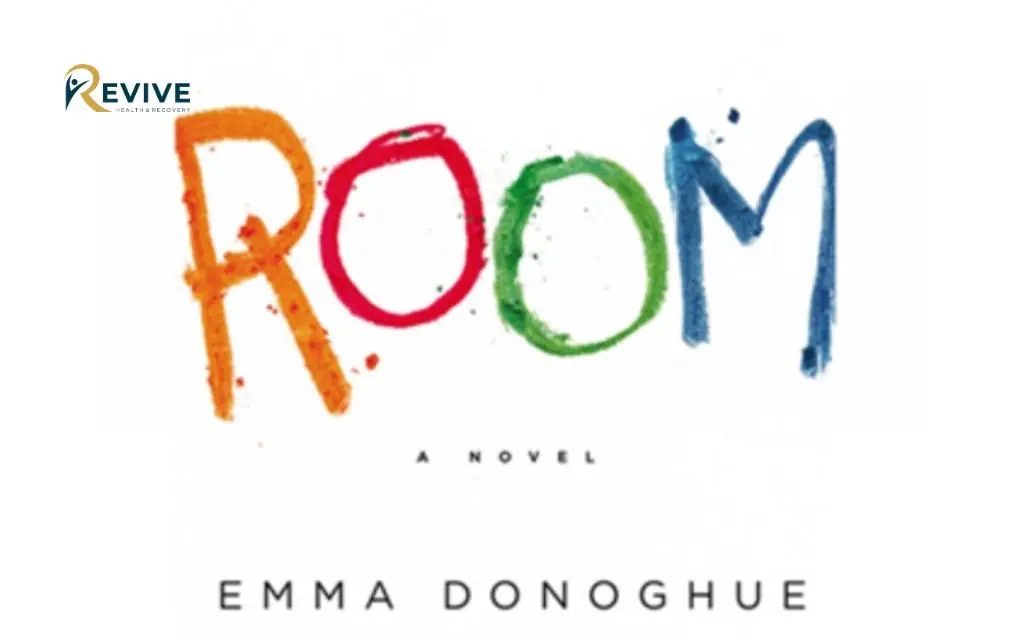
7. “The Great Alone” by Kristin Hannah
Set in Alaska but resonating with Colorado’s mountain landscape, this novel explores how a family’s move to the wilderness amplifies existing trauma dynamics. The book particularly connects with Colorado readers who understand how isolation in beautiful but harsh natural settings can both exacerbate and ultimately help heal trauma.
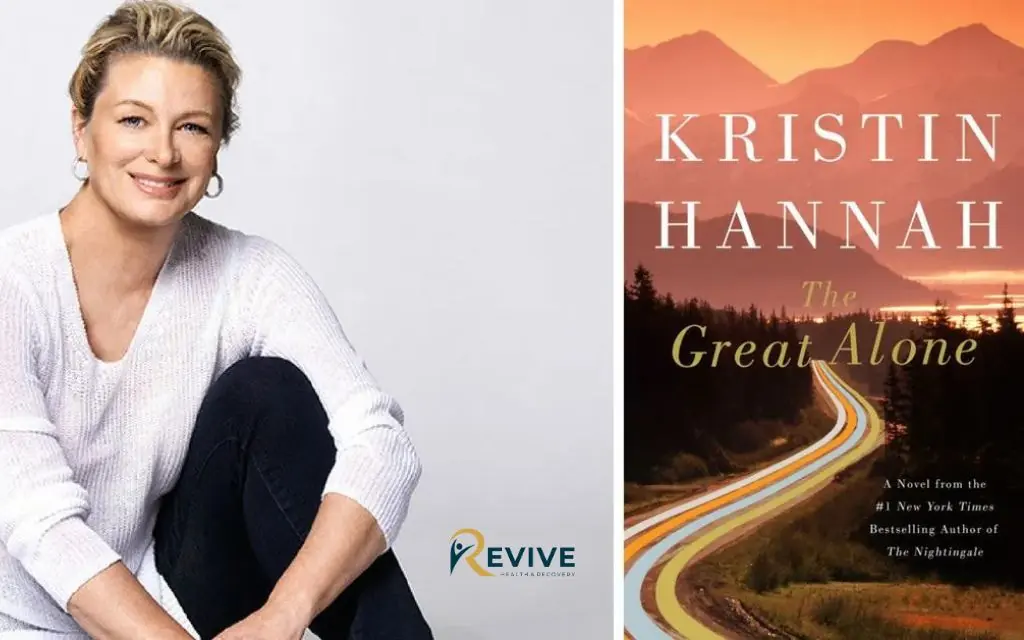
8. “There There” by Tommy Orange
This novel explores intergenerational and cultural trauma in Native American communities, following twelve characters whose lives converge at a powwow in Oakland. For Colorado readers interested in understanding trauma’s broader cultural context, Orange’s work provides essential insights into how historical and personal traumas intersect.
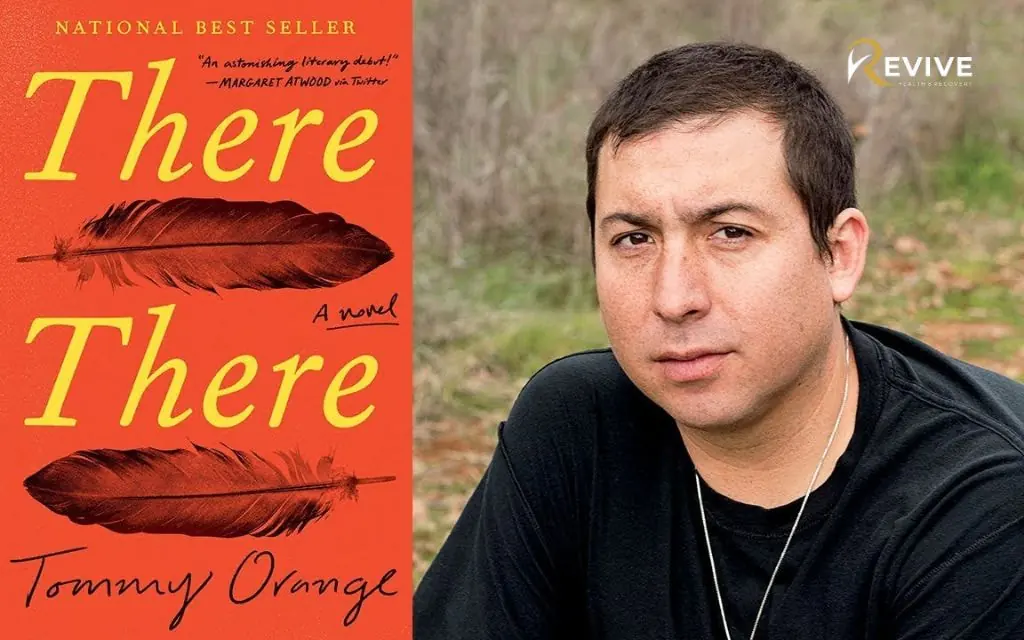
9. “On Earth We’re Briefly Gorgeous” by Ocean Vuong
Written as a letter from a son to his illiterate mother, this poetic novel explores immigrant experiences, intergenerational trauma, and the burden of family history. Vuong’s lyrical prose captures the emotional reality of processing childhood emotional trauma in ways that conventional narrative sometimes cannot.
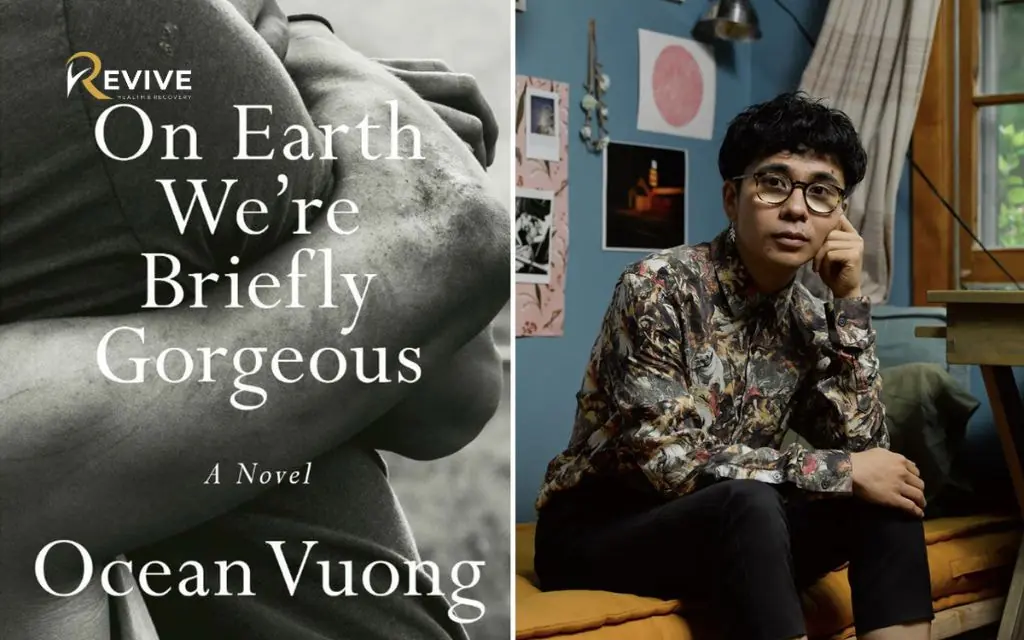
10. “The Round House” by Louise Erdrich
Set on a North Dakota Ojibwe reservation, this novels about childhood trauma explores trauma through the eyes of a 13-year-old boy whose mother is the victim of a violent crime. The story resonates with Denver readers interested in how trauma narratives intersect with justice issues and cultural healing processes.
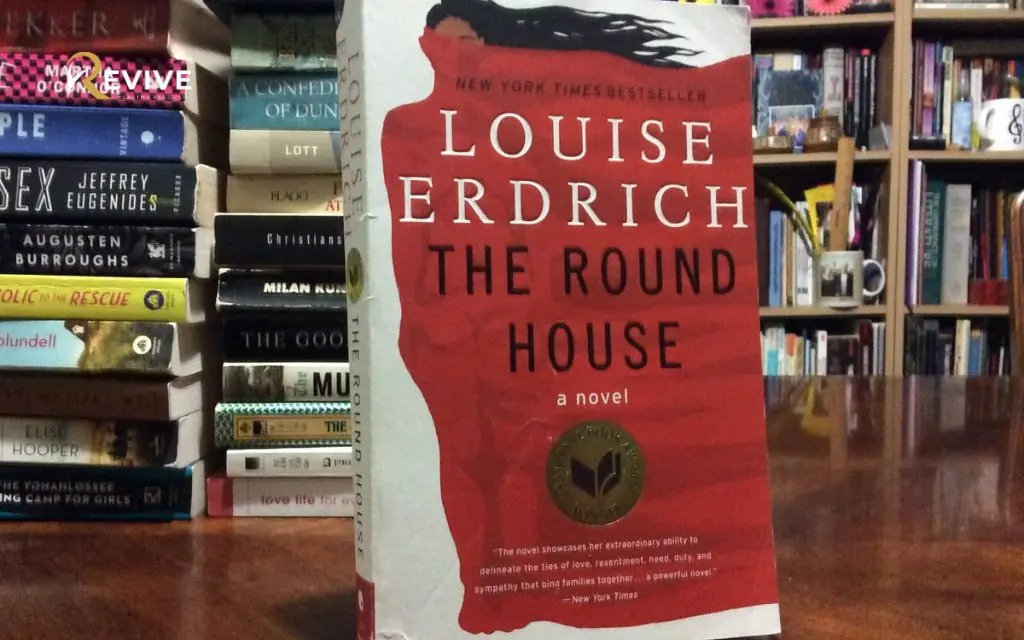
11. “Educated” by Tara Westover
While technically a memoir, this book reads like fiction and follows Westover’s journey from an isolated childhood in rural Idaho to Cambridge University. Her story of overcoming childhood trauma through education and self-discovery provides tremendous hope for recovery and transformation.
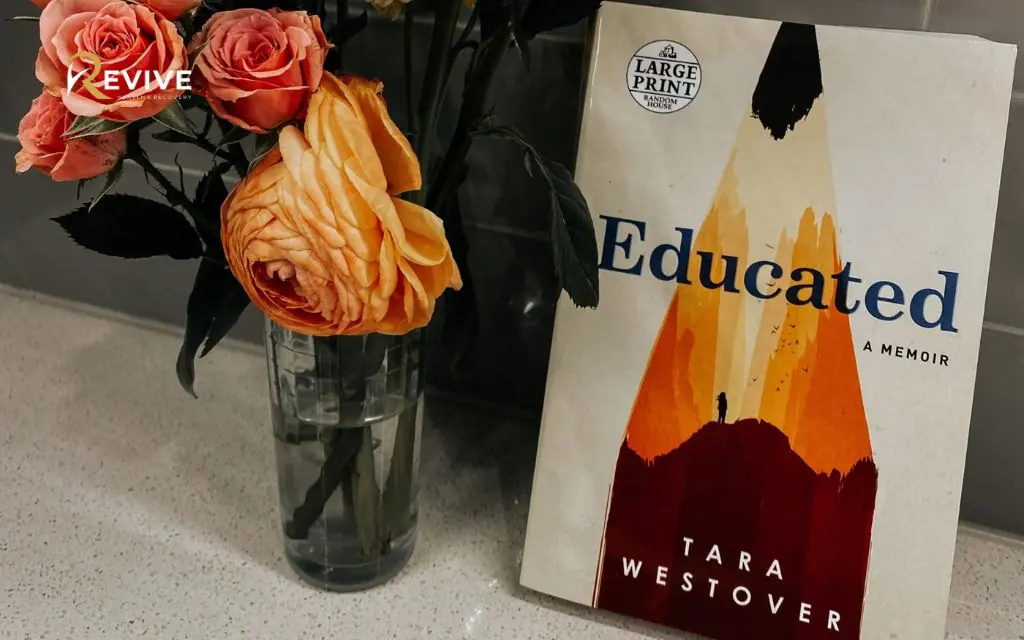
12. “The Glass Castle” by Jeannette Walls
Another memoir that reads like literary fiction, Walls’ account of growing up with deeply dysfunctional parents demonstrates remarkable resilience despite childhood neglect and instability. The book has become a touchstone for many trauma survivors in Colorado seeking to understand their own complex family dynamics.
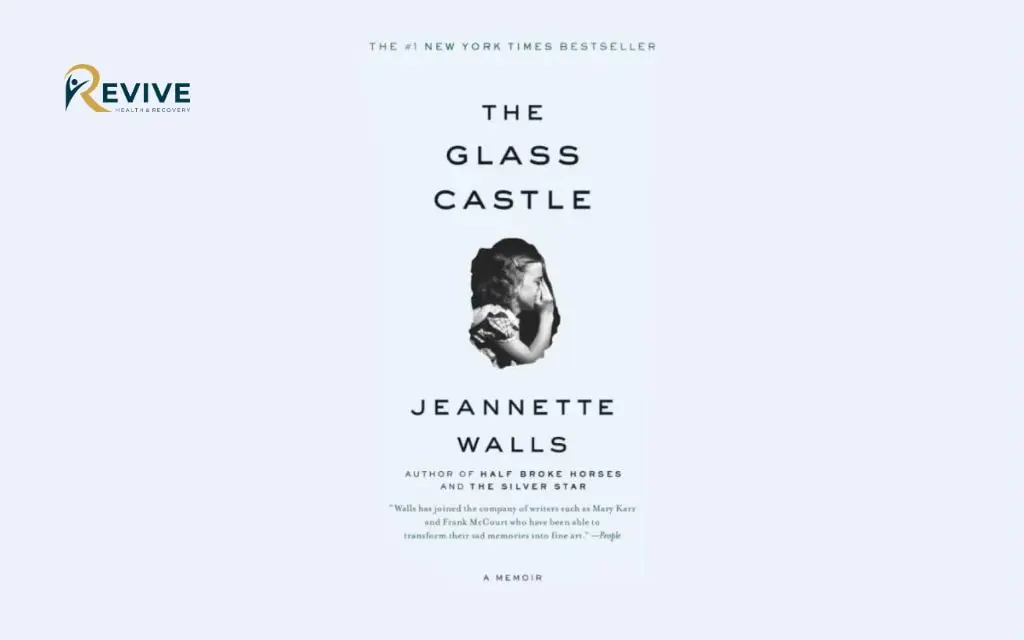
13. “The Kite Runner” by Khaled Hosseini
This novel explores childhood trauma, guilt, and redemption across cultures and continents. For Colorado’s diverse population, Hosseini’s work resonates particularly with those navigating trauma recovery while bridging multiple cultural identities.
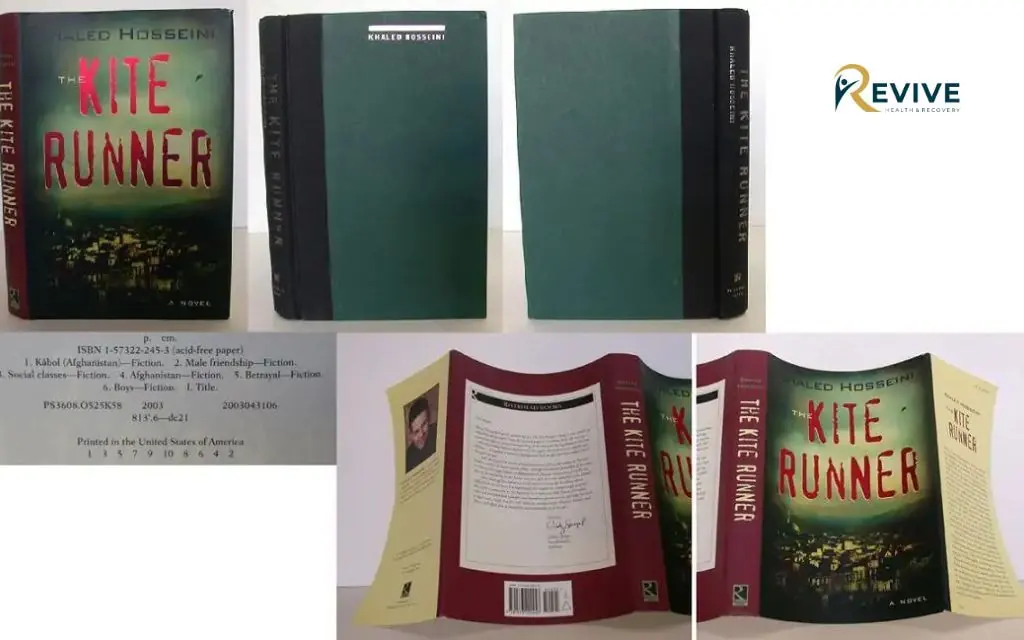
14. “Never Let Me Go” by Kazuo Ishiguro
Ishiguro’s dystopian novel serves as an allegory for childhood trauma, exploring how children process knowledge of their own exploitation. Through science fiction, the novel addresses profound questions about identity formation and relationship challenges stemming from early trauma.
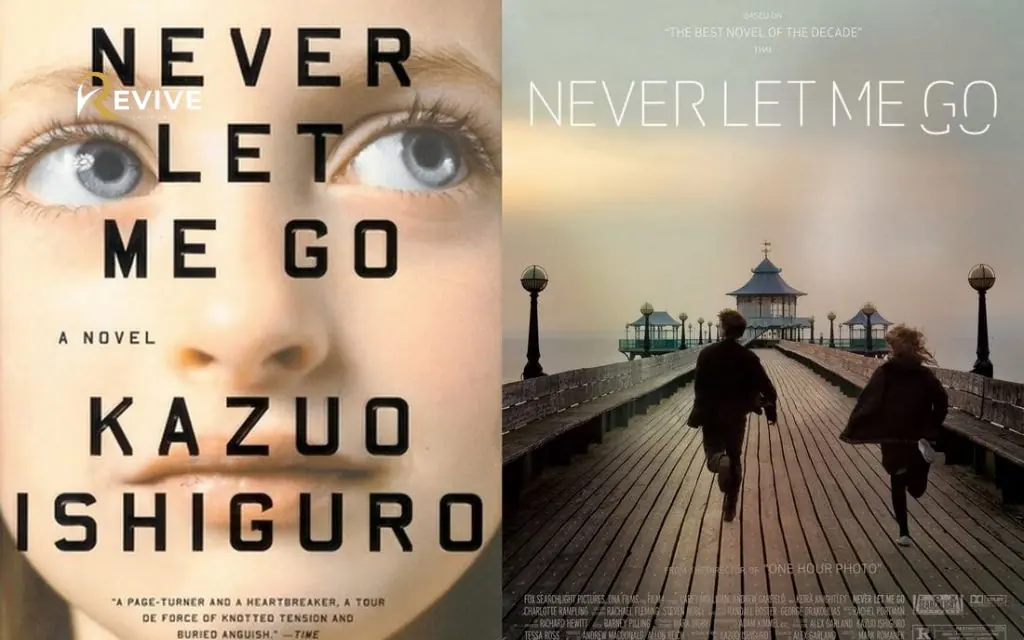
15. “Where the Crawdads Sing” by Delia Owens
Set in the marshlands of North Carolina, this novel follows Kya, a girl abandoned by her family who must raise herself in isolation. The natural setting and themes of abandonment resonate with Colorado readers who find healing connections between trauma recovery and wilderness spaces.

How to Use Fiction as a Healing Tool
Reading novels about childhood trauma requires care and intention, as understanding trauma’s psychological impact can guide safer engagement with such literature. Here are some suggestions for Colorado readers looking to use fiction as part of their healing journey:
- Create boundaries: If a book becomes overwhelming, give yourself permission to set it aside temporarily or permanently.
- Read with support: Consider discussing difficult books with a therapist, friend, or book club.
- Journal your responses: Writing about your reactions can deepen the therapeutic benefits of reading.
- Connect with local resources: Denver’s independent bookstores like Tattered Cover often host book clubs focused on trauma-informed literature.
For those seeking more structured support, Revive Health Recovery Center offers trauma-informed therapy that can complement your reading journey. Our therapists understand how literature can serve as a bridge to deeper healing and recovery.
Other resources that can help you heal without therapy:
- Movies about childhood trauma
- Quotes about childhood trauma
- Podcasts about childhood trauma
- Songs about childhood trauma
Denver Book Clubs and Resources for Trauma Survivors
Colorado’s vibrant literary community offers several resources for readers exploring trauma narratives:
- Multiple Denver bookstores host monthly book clubs focused on mental health fiction and recovery literature.
- Local libraries offer safe spaces for exploring sensitive topics through reading.
- Colorado mental health professionals increasingly recommend fiction as a complementary resource to therapy.
If you’re interested in connecting with other readers processing similar experiences, consider joining a trauma-informed book club or starting one with guidance from mental health professionals.

FAQs About Novels and Childhood Trauma
Can reading about childhood trauma be triggering?
Yes, reading novels about childhood trauma can sometimes trigger emotional responses. At Revive Health Recovery Center, we recommend establishing safety strategies before engaging with potentially triggering material. Our therapists can help you develop personalized approaches to reading sensitive content safely.
How do I know which novels about trauma are right for me?
The “right” novels depend on where you are in your healing journey. Some people benefit from direct portrayals, while others need more metaphorical approaches. Revive Health Recovery’s trauma specialists can help you identify reading material appropriate for your specific situation.
Are there novels about childhood trauma set in Colorado?
Yes, several novels use Colorado’s landscape as both setting and metaphor for trauma recovery. If you’re looking for regionally specific recommendations, Revive Health Recovery’s staff can suggest titles that resonate with local experiences.
How can fiction complement professional trauma therapy?
Fiction provides emotional resonance and representation that can enhance the cognitive work of therapy. At Revive Health Recovery, we sometimes use literary discussions to help clients articulate difficult experiences and emotions that might otherwise remain unexpressed.
Is reading enough to heal from childhood trauma?
While reading trauma narratives can be tremendously beneficial, most survivors need additional support. Revive Health Recovery Center offers comprehensive trauma treatment that addresses the neurological, emotional, and physical aspects of trauma that reading alone cannot reach.
5 Reasons to Choose Revive Health Recovery for Trauma Treatment
If you’ve connected with the novels on this list and are considering professional support for your healing journey, here’s why Revive Health Recovery Center in Denver is uniquely positioned to help:
- Trauma-Informed Approach: Our specialists understand the complex nature of childhood trauma and how it affects every aspect of life.
- Comprehensive Treatment: We offer a range of evidence-based therapies specifically designed for trauma recovery.
- Colorado-Centered Care: Our programs recognize the unique needs and experiences of Colorado residents.
- Holistic Healing: We integrate therapeutic reading and creative approaches alongside traditional therapy methods.
- Supportive Community: You don’t have to heal alone. Our community-based approach creates connections that support lasting recovery.
Beyond the Page: Connecting Fiction to Real-World Healing
Reading novels about childhood trauma can be transformative, but many survivors need additional support. At Revive Health Recovery Center in Denver, we understand the complex nature of childhood trauma and offer comprehensive treatment approaches that complement the insights gained through literature.
Fiction can provide language, validation, and hope, while professional therapy offers concrete tools for processing and healing from trauma. Together, they create a powerful approach to recovery.
Located in the heart of Denver at 1427 S Federal Blvd, we’re accessible to clients throughout the Colorado region. If you’re ready to move beyond understanding your trauma through literature to actively healing from it, contact us at contact@revivehealthrecovery.com or call our 24/7 helpline at (303) 268-4655.
Your story of healing is waiting to be written, and we’re here to help you begin the next chapter.
